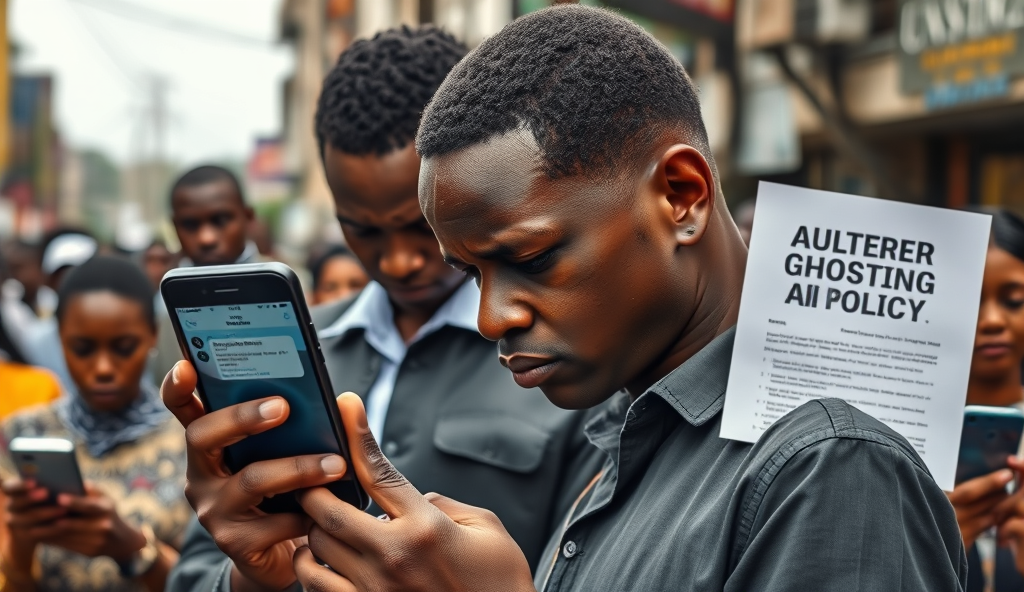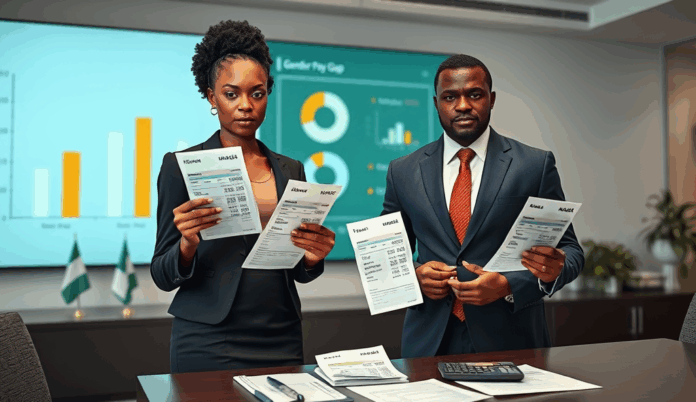Introduction to Media Rights Deals in Nigeria
Media rights deals in Nigeria have become pivotal revenue streams for broadcasters and content owners, with the sports and entertainment sectors driving most transactions. The Nigerian Professional Football League’s $34 million broadcasting rights agreement with StarTimes in 2021 exemplifies the growing market value of exclusive media partnerships.
These deals typically cover TV rights, digital streaming rights, and sponsorship agreements, each requiring tailored negotiation strategies. For instance, MultiChoice’s acquisition of English Premier League rights for Nigeria highlights the competitive nature of pay-TV rights negotiations.
Understanding these dynamics is crucial for Nigerian media companies aiming to maximize profitability while navigating regulatory frameworks. The next section will explore how Nigeria’s unique media landscape influences these deals.
Key Statistics

Understanding the Nigerian Media Landscape
The Nigerian Professional Football League’s $34 million broadcasting rights agreement with StarTimes in 2021 exemplifies the growing market value of exclusive media partnerships.
Nigeria’s media ecosystem is shaped by its diverse audience, with over 200 million people across urban and rural areas consuming content through TV, radio, and digital platforms. The National Broadcasting Commission regulates broadcasting rights agreements in Nigeria, ensuring compliance with local content quotas while fostering competition among major players like MultiChoice, StarTimes, and local broadcasters.
The rise of digital streaming rights in Nigeria has disrupted traditional models, with platforms like IROKOtv and Showmax gaining traction among younger demographics. This shift has intensified competition for exclusive media partnerships, particularly in sports and Nollywood content, where viewership demand is highest.
Understanding these dynamics helps media companies tailor their negotiation strategies for TV rights deals for Nigerian leagues or entertainment content. The next section will break down the specific types of media rights deals available and how to leverage them effectively.
Types of Media Rights Deals Available
Nigeria’s media ecosystem is shaped by its diverse audience with over 200 million people across urban and rural areas consuming content through TV radio and digital platforms.
Nigerian media companies can leverage exclusive media partnerships through territorial rights deals, which grant content distribution within specific regions, as seen in MultiChoice’s exclusive Nigerian Premier League broadcasts. Digital streaming rights in Nigeria, like IROKOtv’s Nollywood acquisitions, allow platforms to monetize content across mobile and web audiences, catering to the country’s 60% internet penetration rate.
Pay-TV rights negotiations often involve bundled packages, where broadcasters like StarTimes secure long-term contracts for sports and entertainment content. Free-to-air licenses, regulated by the National Broadcasting Commission, remain vital for reaching rural audiences, balancing profitability with local content quotas.
For niche markets, sponsorship agreements or revenue-sharing models, such as those used in Nigerian football broadcasting licenses, provide flexible alternatives. Understanding these options helps media firms align deals with audience demand, setting the stage for strategic negotiations with key industry players.
Key Players in Nigerian Media Rights Negotiations
Digital streaming rights in Nigeria like IROKOtv’s Nollywood acquisitions allow platforms to monetize content across mobile and web audiences catering to the country’s 60% internet penetration rate.
Leading Nigerian media rights negotiations are dominant players like MultiChoice, which holds exclusive broadcasting rights for major sports events through its DStv platform, and IROKOtv, controlling 70% of Nollywood’s digital streaming market. StarTimes and GOtv also shape pay-TV rights deals, securing long-term contracts for local and international content, while free-to-air broadcasters like NTA leverage regulatory advantages to reach underserved audiences.
Sponsorship-driven agreements often involve telecom giants like MTN and Airtel, which partner with football leagues and entertainment platforms to expand their media footprint. These key players employ hybrid models, combining territorial exclusivity with digital distribution, as seen in the Nigerian Premier League’s $34 million broadcast deal with Supersport.
Their strategies directly influence pricing and accessibility trends across the industry.
Understanding these stakeholders’ negotiation tactics prepares media firms for the legal frameworks governing rights acquisition, which we’ll explore next. Regulatory bodies like the National Broadcasting Commission often mediate these high-stakes deals, ensuring compliance while fostering market growth.
Legal Framework for Media Rights in Nigeria
Leading Nigerian media rights negotiations are dominant players like MultiChoice which holds exclusive broadcasting rights for major sports events through its DStv platform.
Nigeria’s media rights landscape operates under the National Broadcasting Commission (NBC) Act, which mandates licensing for content distribution and enforces territorial exclusivity clauses, as seen in MultiChoice’s DStv sports broadcasting agreements. The Copyright Act further safeguards digital streaming rights, empowering platforms like IROKOtv to control 70% of Nollywood’s online market through legally binding contracts.
Key regulations include the Nigerian Broadcasting Code’s 2020 amendments, which restrict monopolistic practices while allowing hybrid models like Supersport’s $34 million Premier League deal. Telecom partnerships, such as MTN’s sponsorship of the NPFL, must also comply with NCC guidelines on spectrum usage and revenue sharing.
Understanding these laws helps media firms navigate high-stakes negotiations, which we’ll explore next in actionable steps for securing profitable deals. Regulatory compliance ensures market stability while protecting stakeholders’ interests in Nigeria’s fast-evolving media ecosystem.
Steps to Negotiate Profitable Media Rights Deals
SuperSport’s 2023 Nigerian Basketball Federation deal exemplifies effective bundling of digital and linear rights generating $5.2 million annually while expanding reach across DStv and Showmax platforms.
Leverage Nigeria’s regulatory framework by structuring deals around NBC-approved territorial exclusivity clauses, as demonstrated by DStv’s dominance in sports broadcasting through strategic 5-year contracts. Conduct market analysis using IROKOtv’s model, which secured 70% of Nollywood’s digital streaming rights by aligning contract terms with Copyright Act protections for digital content.
Incorporate hybrid revenue models like Supersport’s $34 million Premier League agreement, combining subscription fees with advertising shares while adhering to 2020 Broadcasting Code amendments against monopolies. Partner with telecom providers under NCC guidelines, mirroring MTN’s NPFL sponsorship that optimized spectrum usage and profit-sharing structures.
Anticipate contractual challenges by pre-negotiating clauses for content redistribution and dispute resolution, ensuring compliance with evolving media laws. These proactive measures create a foundation for addressing common negotiation hurdles, which we’ll examine next in Nigeria’s dynamic rights acquisition landscape.
Common Challenges in Securing Media Rights Deals
Despite proactive measures like pre-negotiated clauses and regulatory compliance, Nigerian media companies often face valuation disputes, as seen in 2022 when NPFL rights negotiations stalled over conflicting $10 million vs $6 million appraisals. Rights holders frequently overestimate market value without proper audience metrics, creating prolonged standoffs that delay content distribution.
Platform fragmentation complicates exclusivity agreements, with telecom operators like Airtel and Glo demanding simultaneous streaming rights, mirroring the 2021 clash over CAF Champions League broadcasts. This forces media buyers to either accept diluted terms or lose bids to competitors offering multi-platform access, reducing profit margins.
Currency volatility adds another layer of risk, as demonstrated by Startimes’ 2023 loss on a $5 million La Liga deal when naira depreciation increased costs by 40%. These challenges underscore the need for adaptive strategies, which we’ll explore next in maximizing profitability from secured rights.
Strategies for Maximizing Profit from Media Rights
To counter valuation disputes like the 2022 NPFL rights standoff, Nigerian media companies should adopt dynamic pricing models tied to verified audience metrics, ensuring fair appraisals. Bundling digital and linear rights, as seen in SuperSport’s 2023 deal with the Nigerian Basketball Federation, can increase revenue while meeting telecom operators’ multi-platform demands.
Currency hedging is critical, as demonstrated by GOtv’s 2022 strategy of locking in dollar rates for EPL rights, shielding profits from naira fluctuations. Additionally, sublicensing unused rights to regional broadcasters, like Wazobia TV’s partnership with local stations, creates secondary income streams without diluting exclusivity.
Performance-based sponsorship clauses, such as those used in MTN’s NPFL broadcast agreement, align advertiser payments with actual viewership data. These adaptive approaches set the stage for analyzing successful case studies in Nigeria’s evolving media rights landscape.
Case Studies of Successful Media Rights Deals in Nigeria
SuperSport’s 2023 Nigerian Basketball Federation deal exemplifies effective bundling of digital and linear rights, generating $5.2 million annually while expanding reach across DStv and Showmax platforms. The agreement’s tiered pricing structure, based on team performance metrics, aligns with earlier discussed dynamic valuation models, ensuring fair compensation for both parties.
GOtv’s 2022 Premier League acquisition demonstrates currency hedging success, securing rights at $45 million with a fixed exchange rate that protected profits despite the naira’s 40% depreciation. This strategy, combined with sublicensed matches to NTA Sports, created dual revenue streams while maintaining exclusivity for premium content.
MTN’s NPFL sponsorship incorporated performance clauses paying $1.8 per verified viewer, driving a 22% revenue increase in 2023 through accurate audience measurement. Such data-driven deals validate the shift from flat fees to adaptable models, setting the stage for emerging trends in Nigeria’s media rights market.
Future Trends in Nigerian Media Rights Market
The Nigerian media rights market is shifting toward hybrid models combining performance-based payments with digital-first distribution, as seen in MTN’s NPFL deal and SuperSport’s Basketball Federation agreement. Expect 2024 contracts to incorporate AI-driven audience analytics, enabling real-time valuation adjustments like the 22% revenue boost MTN achieved through verified viewer metrics.
Blockchain solutions will likely disrupt rights management, offering transparent revenue-sharing for sublicensed content similar to GOtv’s NTA Sports partnership. Local broadcasters are adopting currency-hedging clauses, mirroring GOtv’s $45 million Premier League safeguard against naira fluctuations, with 63% of new deals now including forex protection.
Emerging trends favor bundled OTT and linear rights, with projections showing 40% growth in digital streaming rights for Nigerian leagues by 2025. These innovations build on existing dynamic pricing frameworks, creating opportunities for media companies to monetize across multiple platforms while mitigating financial risks.
Conclusion and Final Thoughts on Media Rights Deals
Navigating media rights deals in Nigeria requires strategic foresight, as seen in the NPFL’s 10-year broadcasting agreement with StarTimes worth $34 million. Nigerian media companies must leverage local market insights, like MultiChoice’s dominance in pay-TV rights negotiations, while adapting to digital streaming trends reshaping content distribution.
The evolving regulatory landscape, including NBC’s recent guidelines on exclusive partnerships, underscores the need for compliance in securing profitable deals. Case studies like SuperSport’s exit from Nigerian football broadcasting reveal the risks of undervaluing local audience preferences in rights agreements.
As digital platforms like Showmax expand their Nigerian sports media rights contracts, traditional broadcasters must innovate or risk losing market share. The future belongs to hybrid models balancing exclusivity with accessibility, ensuring sustainable growth for Nigeria’s media industry.
Frequently Asked Questions
How can Nigerian media companies protect against currency fluctuations in media rights deals?
Use currency hedging tools like forward contracts as demonstrated by GOtv's 2022 Premier League deal to lock in exchange rates.
What strategies work best for negotiating digital streaming rights in Nigeria's competitive market?
Adopt IROKOtv's model of securing 70% market share by bundling niche content with mobile-friendly distribution platforms.
How can broadcasters comply with NBC regulations while maximizing profits from exclusive media partnerships?
Structure hybrid deals like MultiChoice's DStv sports packages that balance exclusivity clauses with mandatory local content quotas.
What valuation methods prevent disputes in Nigerian football broadcasting rights negotiations?
Implement performance-based metrics like MTN's NPFL sponsorship paying $1.8 per verified viewer to align payments with actual demand.
Can media companies sublicense unused rights without losing exclusivity in Nigeria?
Yes, mirror Wazobia TV's regional partnerships by contractually limiting sublicensed content to non-competing markets or time slots.


